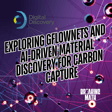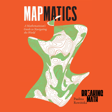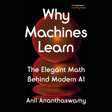
Is AI Conscious?
AI & Consciousness: Philosophical Debates, Ethical Implications & the Future of Conscious Machines
In this episode of Breaking Math, hosts Autumn and Gabriel explore the intricate relationship between artificial intelligence (AI) and consciousness. Delve into historical perspectives, philosophical debates, and the ethical questions surrounding the creation of conscious machines. Key topics include the evolution of AI, challenges in defining and testing consciousness, and the potential rights of AI beings. We also examine the Turing Test, the debate between strong AI vs. weak AI, and concepts like personhood and integrated information theory. Perfect for anyone interested in AI ethics, the nature of consciousness, and the responsibilities of advanced AI technology.
Keywords: AI, consciousness, Turing test, strong AI, weak AI, ethics, philosophy, personhood, integrated information theory, neural networks
Become a patron of Breaking Math for as little as a buck a month
Follow Breaking Math on Twitter, Instagram, LinkedIn, Website, YouTube, TikTok
Follow Autumn on Twitter and Instagram
Follow Gabe on Twitter.
Become a guest here
email: breakingmathpodcast@gmail.com



















